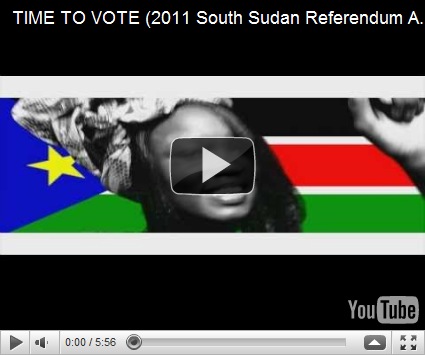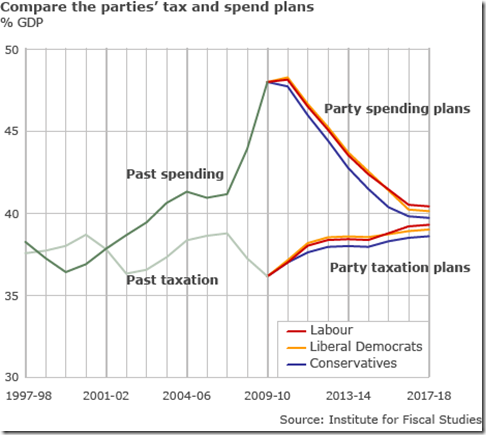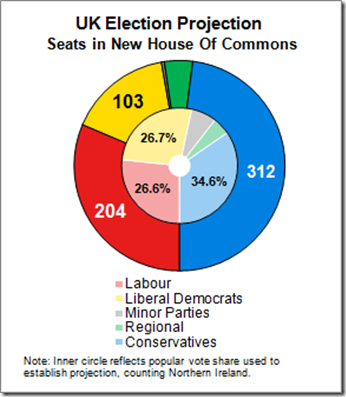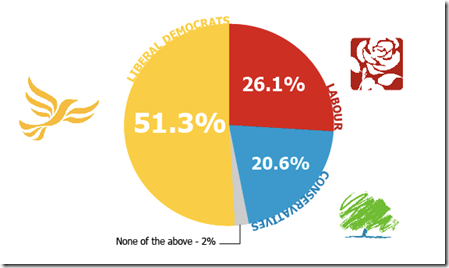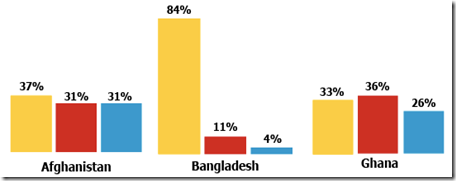Seen in this light, the “massive turnout” that the newspapers are reporting this morning starts to seem disenchanting. To the extent that turnout is driven by campaign promises, more voters may mean more disillusionment and less communal collective action down the line.Definitely worth reading the rest of his report from Election Day in Liberia on Chris Blattman's Blog.
13 October 2024
Election Day in Liberia
25 January 2025
Photo of the Day
Of votes counted so far in the referendum, 98.81% have been for secession. Seems like a good occasion to post this photo of a billboard in Khartoum, taken by a friend during the 2008 Census.
10 December 2024
What happened to all the interventionists?
UPDATE: I found one! G. Pascal Zachary, africanist-journo-professor asks:
Is it time to remove Gbagbo by force?
Rebecca?
05 November 2024
The Final Countdown
After much coaxing, my friend Maggie Fick finally has her own website. Essential Southern Sudan reportage. This photo of hers is of the new (presently inaccurate) electronic referendum countdown clock in Juba.
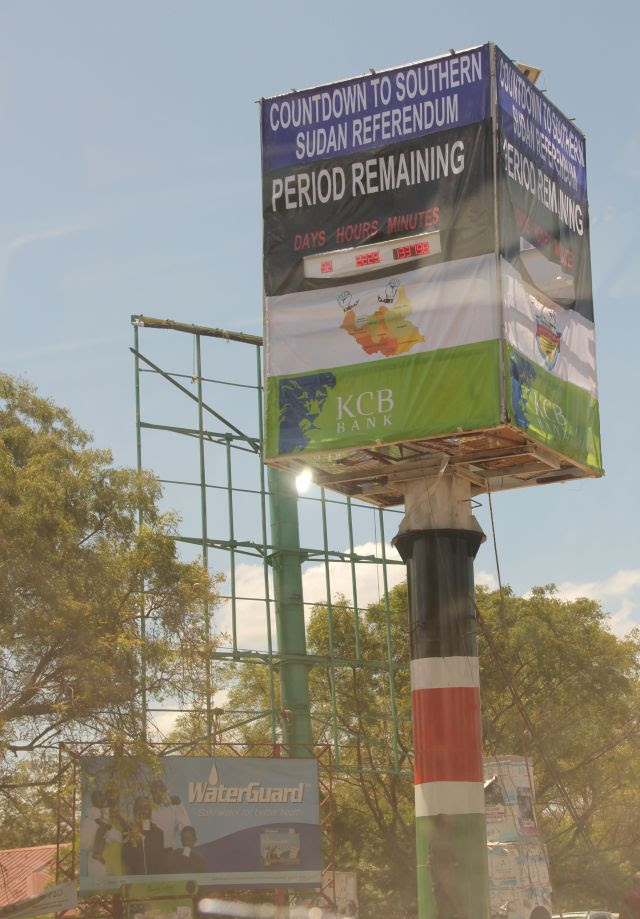
31 October 2024
African Election Super Sunday
32m people are heading to the polls today in Tanzania, Cote d’Ivoire, and Niger. Good luck to all involved, and lets hope it all goes smoothly. For more see the Typerighter blog.
06 October 2024
02 July 2025
President loses election in Somaliland
In elections described as free and fair by international observers, Somaliland replaced its President with the opposition candidate.
This is a great achievement for the pseudo-state. Less than 10% of African leaders since independence have left office through the ballot box.
Will this bolster claims for international recognition?
Nick Eubank, author of a couple of papers on Somaliland’s political development argues that
recognition-or more specifically the subsequent eligibility for foreign assistance which would almost certainly follow-has significant potential to upset Somaliland's success.
…
in the absence of foreign aid, Somaliland's government was forced to negotiate with a wide array of actors in order to develop a sufficient tax base, and it was as a result of these negotiations that the country developed highly representative institutionsYou can probably guess what my solution would be. Don’t give aid to the Government of Somaliland. Give it to the people.
----------------
Update: A friend has sent me an article by Rageh Omaar, a British journalist born in Mogadishu whose family are from Somaliland.
"For Somalilanders, formal recognition by the rest of the world is the holy grail, a national obsession that defines part of what it means to be a Somalilander and that cuts across all party lines."
30 June 2025
Secession and the State in Africa
Over at Let a Thousand Nations Bloom, Patri Friedman [Milton’s grandson and Seasteader] and friends are holding their second-annual “secession week” in an attempt to re-brand the US independence as an act of secession.
Here is their pro-secessionist theory in a nutshell. More states gives people more choice - greater option for exit - and this greater competition leads to better government.
How does this apply to Africa? Claudia Williamson makes the case to “Let fake states fail: Anarchy as a viable solution to artificial states”. I’m not entirely convinced on Somalia being a great poster child for anarchy. But letting fake states fail?
Sorry Congo, I know it is your 50th birthday today, but I have to agree with Jeffrey Herbst.
The international community needs to recognize a simple, albeit brutal fact: The Democratic Republic of the Congo does not exist.
The UN seal of approval to statehood is so arbitrary! Would somebody please recognise Somaliland?! They have bi-o-met-ric pass-ports - and have just conducted what seems to be a reasonable election in which the opposition stand a chance of winning.
Gaddafi made some waves a few months ago by calling for Nigeria to be carved up. So are more states the answer? Loomnie was skeptical for Nigeria.
Paul Collier is skeptical more generally. In his Political Economy of Secession he takes a predictable “small romantic rebel groups are not so romantic” refrain.
There are of course problems with his statistical analysis (and some new more sophisticated GIS analysis is refuting his findings), but he is still essential reading.
if our analysis is broadly correct, secessionist movements should not in general be seen as cries for social justice. Those few secessionist movements that are able to scale-up to being organizations with a serious political or military capability are likely to occur in rich regions and contain an element of a ‘resource grab’. They may also reflect the fantasies of diasporas settled in rich countries and a poorly educated population. Secessionist organizations are usually built on the foundations of romantic localism, and this will continue to shape their discourse. However, such localism is found almost everywhere. That viable secessionist organizations are rare indicates that romantic localism, and its associated discourse of grievance, is not by itself decisive. Romantic localism is not necessarily dishonest or irrelevant, but it offers a misleading explanation for what makes a secessionist organization strong.
If the cocktail of natural resource wealth, diasporas, and illiteracy succeeds in dismembering large, multi-cultural developing and transition societies, the world is unlikely to become a safer place. The secession of Eritrea from Ethiopia, heroic as it was, has not resulted in peace. It transformed a civil war into an international war, with a huge escalation in human and economic costs. It also has created a nation of 50 million people without direct access to the sea.
Nor are the small new societies that are created by secession necessarily internally cohesive. In Eritrea, the President recently arrested around half of the members of his cabinet. East Timor has sixteen different political parties, one for every 50,000 people. It would surely be disturbing if, at the same time as developed countries were integrating as never before, developing countries were disintegrating into tiny but disputatious ethnic theme parks.
And as for Southern Sudan next January? Well firstly as Douglas Johnson said at the University of Juba last week, an independent Southern Sudan would not become a land-locked country, because that is what it always has been.
Secondly, I’m with Salva Kiir. Let the people vote for what they want.
11 May 2025
06 May 2025
Election Day Morning Round-up
Still no response to my question about international development policy from my local Labour Party candidate.
So Hilary Myers (Lib Dem) gets my vote (assuming my proxy voter doesn’t cheat me) , for saying
We remain committed to increased coherence between UK development, trade, investment, migration and agriculture policies.
Sam Lampert just told me about fivethirtyeight.com which is frankly awesome - model-based seat estimates (generally more reliable than polls) with cool graphics. Trust the americans to cover our election better than we can.
If it is this tight the regional parties (Scottish and Welsh nationalists) are really going to come into play.
Results are also in from the Give Your Vote project - UK voters have pledged their votes to people from Afganistan, Bangladesh and Ghana.
I bet Nick Clegg wishes his electorate was Bangladeshi.
I’ll watching at Sam’s place (we love you Sam!), and playing election bingo courtesy of the BBC.
I’ll leave you with John Stuart Mill (1866)
"The Conservative Party is, by the law of its constitution, necessarily the stupidest party. I do not retract that assertion... stupid people are generally Conservative. I believe that is so obviously and universally admitted a principle that I hardly think any gentleman will deny it."
The next 4 years are going to suck. But with any luck, the massive cuts will make everyone hate tories again, and there will be a wonderful Lib/Lab coalition in 2014 with proportional representation and House of Lords reform and rules against going into stupid wars and a truly social liberal progressive domestic agenda that is fiscally responsible and “coherence between UK development, trade, investment, migration and agriculture policies.”
I can’t wait.
03 May 2025
Charlie Brooker on David Cameron
Like an ostensibly realistic human character in a state-of-the-art CGI cartoon, he's almost convincing - assuming you can ignore the shrieking, cavernous lack of anything approaching a soul. Which you can't.
I see the sheen, the electronic calm, those tiny, expressionless eyes . . . I glimpse the outlines of the cloaking device and I instinctively recoil, like a baby tasting mould. Don't get me wrong. I don't see a power-crazed despot either. I almost wish I did. Instead, I see an avatar. A simulated man with a simulated face. A humanoid. A replicant. An Auton. A construct. A Carlton PR man who's arrived to run the country, and currently stands before us, blinking patiently, blank yet alert, quietly awaiting commencement of phase two. At which point, presumably, his real face may finally become visible.
22 April 2025
Liberal Democrats on International Development
Hilary Myers (Liberal Democrat) is the latest candidate in my constituency to offer her views on international development policy (see also here and here). I am blown away, I really didn’t expect any answers this good. I particularly like these two paragraphs on going beyond aid.
Liberal Democrats do recognise that financial aid is not necessarily the most important or effective way of delivering support in developing countries. Trade also has a vital role to play. We remain committed to increased coherence between UK development, trade, investment, migration and agriculture policies.
Coupled with this, Liberal Democrats recognise the importance of improving taxation and transparency and tackling corruption in the developing world. In our recent paper, Development in a Downturn, we set out plans to reform international financing systems by cracking down on tax havens, improving transparency and tackling corruption - particularly by making it harder for western banks and financial institutions to facilitate that corruption.
Read the whole thing here. Steph Booth for Labour (the incumbent party) is the only candidate who hasn’t yet responded. But she is going to have to say something special to beat this.
19 April 2025
UK Conservative Party policy on International Development
As mentioned previously, here is the extract from Conservative Party policy sent to me by my local Conservative candidate, Craig Whittaker. He also replied to my follow-up question:
My views don't differ from those of my Party. Our policy has been well researched and what appears to have been well tested through experts (Sir Bob Geldoff has also advised) and it seems to go a long way to addressing the Millennium Goals whilst at the same time addressing the issues surrounding fraud and corruption.
It appears to be a sound, well researched policy which I support
---------------------------------------------------------------------------------
Leadership on Global Poverty
The Globalisation and Global Poverty Policy Group was establish by David Cameron back in 2005 and issued its report back in July of 2007. It consisted of a range of experts and was advised by Sir Bob Geldoff.
It produced a detailed and extensive set of recommendations on future development policy for A Conservative Government and was warmly welcomed by many commentators.
A key recommendation was for a ‘Bold Real Trade’ package to help the poorest Countries access markets in rich Countries
In July 2009, David Cameron and Andrew Mitchell, the Shadow Secretary of State for International Development launched ‘One World Conservatism’, our Green Paper on International development.
The paper sets out in detail how a Conservative Government will get better value for money from our aid budget through full transparency, results based aid and an independent Aid Watchdog to scutinise spending
We will continue to work towards securing the eight Millennium Development Goals
On results based Aid we will;
· Move towards ‘Cash on Delivery’ aid: money will be handed to governments only when development results have been achieved - rather than giving all the money up front based on promises that it will be spent well
· We will set up an Independent Aid Watchdog to scrutinise the impact and outcomes of British Aid. Aid will be focused on the Country programmes and projects that deliver the best value, while under performing aid programmes will be cut and the money redirected to more effective channels
· We will carry out more impact evaluations on DFID aid programmes, taking detailed ‘Before & After’ look at aid projects to identify whether they actually worked
WE WILL MEET the UN target of spending 0.7% of National Income by 2013
We will strengthen public support for Aid by setting up a new MyAid Fund worth £40m in the first year, with British people voting on how and where it should be spent
On Tackling disease we will;
· Spend at least £500m a year tackling Malaria until the Millennium Development Goal on Malaria (To halt and begin to reverse the incidence of disease) has been met. We will use the money for Malaria -specific initiatives and for strengthening health systems in developing countries
· A Health systems Partnership Fund will be established to help Doctors and Medical staff who want to volunteer in developing Countries. The fund worth £5m a year to begin with, will help fund international placements for British Health workers and support strong, enduring links between the NHS and health systems in poor Countries
· We will tackle HIV/AIDS by : building basic healthcare systems : championing prevention as well as treatment; and working to tackle Mother to child transmission of HIV
· We will publish full information about British Aid on the DFID website, following the example of the Global Fund for Aids, TB and Malaria, which produces detailed information about its spending on its website. This will allow Parliament, the Public, campaigning organisations and the press to hold the DFID to account
· We will work for greater transparency across the whole aid system, requiring all bodies receiving DFID funds, to move towards greater openness and transparency
With encouraging Global Trade we will;
· Push hard for a pro-development trade deal at the World Trade Organisation and for reform of EU Trade Policies. We will press the EU and other rich Countries to drop their trade barriers on low-income countries unilaterally by 2013, to simplify cumbersome rules of origin for exports from poor Countries, to eliminate developed country subsidies and to provide greater aid for trade
· We will encourage the creation of a Pan-American Free Trade Area to reduce the trade barriers African Countries impose on imports from other African nations
· We will champion growth led by the Private Sector in developing countries by supporting microfinance and property rights
. We will support and encourage ethical consumerism. Together with other ethical consumer brands, the Fair Trade scheme allows consumers to send a market signal voluntarily about the conditions in which they want their food produced. We are enthusiastic supporters of the scheme and applaud all businesses who take corporate social responsibility seriously
More on the UK election and International Development Policy
The ONE campaign has received responses from the 3 main parties (plus the Greens and Plaid Cymru) on their plans to fight extreme poverty.
The first thing I noticed is that Labour have by far the most to say. A quick word-count reveals:
Labour - 1684 wordsLabour’s statement is also full of numbers, which is always a good thing.
Conservative - 668 words (excluding the repeated links to their policy paper)
Lib Dem - 745 words
Green - 342 words
Plaid Cymru (Welsh Nationalists) - 617 words
At first glance though, none of the platforms completely blows me away.
I am actually most impressed by Plaid Cmyru, who have interesting and provocative statements on migration
We recognise the invaluable contribution that migration has made to the UK, socially, culturally and economically over many years, and believe that this positive contribution will continue in future … We believe that we share a duty to uphold and defend people's right to seek asylum and we will work to ensure Wales’ proud tradition of offering refuge to the persecuted continuesand security
We believe that war is abhorrent and we condemn the Westminster government for dragging Wales into illegal wars. We believe that the European Union, through its High Representative for Common Foreign and Security Policy, can and should play a greater role in conflict prevention and resolution, including joint peace keeping missions. We also call for effective European action on the international arms trade, including a new treaty and binding code of conduct restricting arms exports, as well as a complete ban on land mines, cluster bombs and white phosphorous. The arms industry causes misery and death to millions of people throughout the world, not just by means of its destructive force but by diverting resources from socially beneficial activities such as food production, education and health.Following them, Labour have the best overall response, with good ideas on accountability, trade and security.
Accountability - “leadership of the International Aid Transparency Initiative,” “to promote accountability and transparency through parliaments, audit mechanisms and civil society,” the Extractive Industries Transparency Initiative, a Bribery Bill, and “funding to support developing countries to recover stolen assets.”
Trade - “securing duty and quota free access to EU markets.”
Security - “treat access to security and justice as a basic service.”
The Conservatives have some interesting ideas on aid - “an independent aid watchdog”, “move towards results-based aid,” and “reduce, or even abolish, funding for UN and multilateral agencies that fail to deliver results, and give more to those who can prove that they are making a real difference.”
And finally I like the Liberal Democrats’ statement that
“We believe that bilateral aid should be targeted at the poorest people not necessarily the poorest countries,” and “security and justice should be seen as rights.”
Judging from these limited statements, Labour have the strongest overall platform, but if Plaid Cymru are serious about wanting more open immigration, then this eclipses all of the other policy proposals in terms of positive welfare impacts. Also note that I haven’t waded through the entire policy documents, but just gone on the responses posted by ONE.
However.
Due to the UK’s bizarre electoral system, I don’t get to choose a government, only a local MP.
And so - I emailed all of my local candidates, asking for their views on international development policy.
The Greens and the English Democrats already responded here.
Hilary Myers (Lib Dem) has promised to respond (which I look forward to).
Greg Burrows (UKIP) wrote on his website:
my personal opinion is that the first thing we have to do his get our own house in order, as we are the most indebted nation out of the G8 and need to develop our own economy first and then and only then can we help others in the international community. David Campbell Bannerman is in charge of UKIP policy his office email in Europe is [email protected] his office should be able to give you a detailed account of international development policy. RegardsCraig Whittaker (Conservative) sent a 700 word extract from Conservative party policy which I will post separately (here). I have also asked for a follow-up on if and how his views differ at all from party policy.
Kate Sweeny (Green) also sent me this flyer:
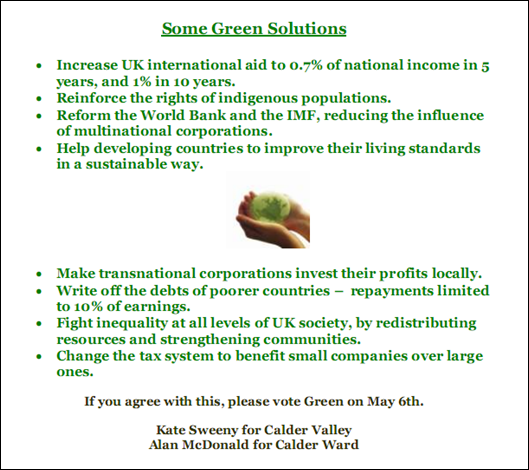
The jury is still out, and I still hope to receive something from Labour and the Liberal Democrats.
You can find your own candidates at yournextmp.com, and meanwhile keep an eye on Lawrence Haddad for “an international development comparison of the 3 manifestos.”
Finally - I’ll be voting by proxy - more info for Brits overseas here (but hurry!) HT: CK
18 April 2025
Markets not in everything
I went to the Kampala Coaches office on Friday to purchase a bus ticket to Juba.
Ticket lady: Sorry, we aren’t travelling to Juba during the election period.
Me: But the elections finished yesterday.
Ticket lady: Yes but we are waiting for things to calm down.
Me: Oh….
12 April 2025
Sudan Elections 2010
Alex Thurston is doing a good daily news and blogs update.
That is all.
11 April 2025
On the campaign trail in… the Calder Valley
Not quite as exciting as the elections in Sudan, but the UK also has general elections coming up on May 6th. So just over a week ago (30th March) I thought I would email the candidates standing in my UK constituency (Calder Valley). Here is what I wrote:
Dear xxxxxx,
I'm supporting the ONE campaign's call for all the parties to go "On the Record" about their international development policies. What are your views on international development policy?
I'll also be emailing the other candidates and voting for whoever has the best answer.
Many thanks,
The candidates, according to the UK Polling Report, are:
Craig Whittaker (Conservative)
Stephanie Booth (Labour)
Hilary Myers (Liberal Democrat)
Kate Sweeney (Green)
Greg Burrows (UKIP)
Paul Rogan (English Democrat)
Kate Sweeney (Green) and Paul Rogan (English Democrat) got back to me the same day.
Kate said:
You can find our detailed policy on
http://policy.greenparty.org.uk/mfss/mfssip.html
I shall be preparing a leaflet on this subject in the next week or so, and I'll e-mail you a copy. I'm away for the next few days so please bear with me till after Easter!
and Paul said:
I am not standing at either local or Westminster elections and have not formed a deep view on the subject which you have asked about.
My gut feeling is that, in the present economic situation all external expenditure is high on the list of cuts. Included in this is a withdrawal from the EU, closure of embassies and consuls.
For the record, what are your views?
The others… I’m still waiting. What was that about the “new media election”?
06 April 2025
On the campaign trail in Southern Sudan
“I cannot allow you to sleep here,” he says in a direct tone typical of many Europeans. “Perhaps you can find accommodation in town.” Mary appears distressed, a feeling that I quickly assume. “But I am concerned for my security here,” she pleads. “One of my supporters has been arrested and I am not sure if I will be safe.” Standing in the darkness, with no accommodation in sight and a dwindling amount of time in this oasis of security, my blood begins to boil. I had not, until just now, heard Mary admit that she feared for her safety in Pibor. In all my neurotic, security-related queries, Mary insisted that everything here would be fine. I suspected, however, that her interest in my coverage led to a particularly rosy forecast.
“It is exactly because you have these security concerns that I cannot allow you to stay in the compound,” Chris explains, his patience on the decline. Having worked with international organizations in the past, I understood his reasoning and knew there was no chance of reconsidering. “Thanks anyway,” I manage over a growing lump in my throat. “Let’s get a move on.”
From Pete Muller’s coverage of Mary Boyoi’s campaign for a seat in the Southern Sudan Legislative Assembly for Pibor, Jonglei State.
26 March 2025
Social Networks for Development - India Edition
Here it is folks - Kiirti - a one-stop reporting and petitioning platform for Indian governance.
It is a platform to enable effective governance by promoting awareness and citizen engagement. It allows government, non-government and civic organizations to engage with citizens easily through phone, sms, email, and the web.
These guys running this (eMoksha.org) will also be running the Ushahidi platform for the Sudanese elections: Sudan Vote Monitor.
25 March 2025
Did I ever tell you about the Obama t-shirts in Juba?
Originary
Born in
Africa to
Manage
Americans
Awesome. Also, Yasir Arman, the SPLM candidate for President of the Republic of Sudan (not Southern Sudan) is standing on a platform of Hope and Change. Check out the website.

